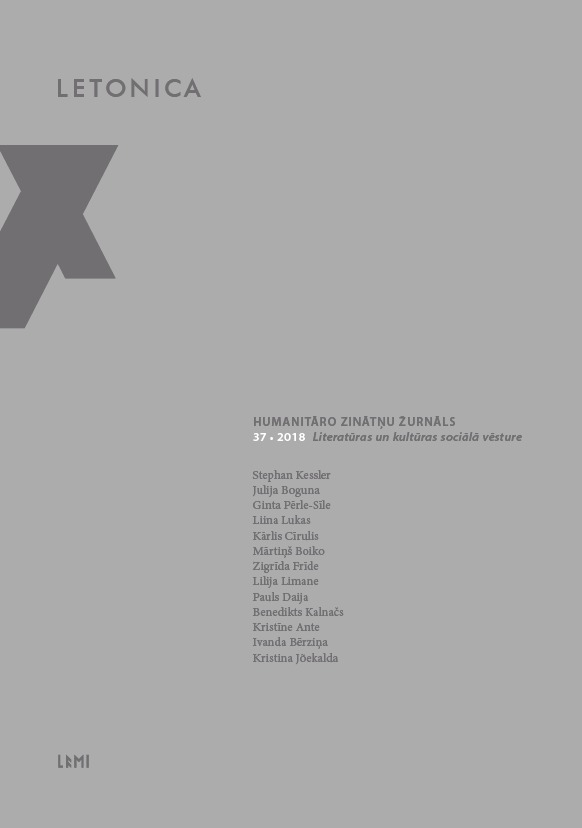Die Geburt der estnisch- und lettischsprachigen Lyrik aus dem Geiste des Liedes
The Birth of the Poetry in Estonian and Latvian from the Spirit of Song
Author(s): Liina LukasSubject(s): Poetry, Finno-Ugrian studies, Baltic Languages, 18th Century, Translation Studies
Published by: Latvijas Universitātes Literatūras, folkloras un mākslas institūts
Keywords: song; folksong; popular enlightenment; history of translations; history of Estonian and Latvian poetry
Summary/Abstract: In the article, an early phase in the history of Estonian and Latvian poetry during the second part of the 18th century has been explored by turning attention towards the history of publications, differences between various media, parallels and differences between the dynamics of Estonian and Latvian poetry. In this period, poetry in Estonian and Latvian was written mostly by Baltic German authors who most often published translations from German literature. The emergence of Estonian and Latvian poetry from three traditions (occasional poetry, folksongs, and hymns) has been analyzed in the article. By providing detailed insight into the contexts of Estonian and Latvian poetry in the 18th century and tracing the reasons of genesis of the printed secular poetry, it has been discussed in the article how Estonian and Latvian secular poetry has been emerged from the German songs (the sources of the translated poems are to be found rather in collections of songs than in collections of poems). In this regard, among other sources of the translated Estonian and Latvian poetry, the “Song book of Mildheim” by Rudolf Zacharias Becker has been analyzed along with the program of aesthetic education of the Popular Enlightenment. In the final part of the article, the contribution of the Popular Enlightenment in the development of poetry has been explored, as contrasted to ideas of Johann Gottfried Herder on folklore and first publications of folksongs.
Journal: Letonica
- Issue Year: 2018
- Issue No: 37
- Page Range: 51-62
- Page Count: 12
- Language: German

